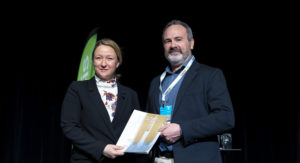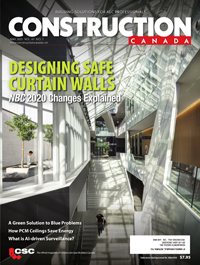Successful debut: Cecobois’ inaugural forum on embodied carbon in construction

The inaugural Forum on Low Carbon and Bio-based Construction (CBCB), hosted by the Centre d’expertise sur la construction commerciale en bois (Cecobois), convened at the Québec City Convention Centre in February.
Running alongside the 10th Cecobois Conferences, it marked a milestone as the first large-scale event centred on reducing embodied carbon in buildings. Notably, the forum showcased the burgeoning adoption of non-residential multi-storey wood buildings and emphasized regulatory initiatives such as Toronto’s Green Standard and Vancouver’s Building By-Law, which set limits on embodied carbon.
Present at the conference, Quebec’s minister of natural resources and forests, Maïté Blanchette Vézina, highlighted innovation and training as key strategies in the Politique d’intégration du bois (wood integration policy in construction) to mitigate greenhouse gas (GHG) emissions. Financial support for ongoing training and promoting wood’s environmental benefits were also underscored.
In line with Québec’s 2030 Green Economy Plan, efforts to promote energy-efficient, low-carbon construction materials are underway. Cecobois aims to lead by establishing a Life Cycle Assessment (LCA) database to document the average carbon footprint of buildings, with the aim to inform future construction decisions.

Due to the success of the inaugural event, the CBCB Forum will return in 2025 to further propagate the concept of embodied carbon reduction, share green building expertise, and foster networking among industry stakeholders.
“Given the improvements to the energy efficiency of buildings, and given the context in Quebec, where hydro-electricity—clean energy—is predominant as an energy source, embodied carbon can account for up to 75 per cent of a building’s carbon footprint over its life cycle,” said Louis Poliquin, director of Cecobois. “The growing percentage of non-residential public and private wood-framed buildings of four storeys or less built in Quebec provides ample proof of this. It more than doubled between 2006 and 2022, from 15 per cent to 36 per cent. We need to continue our training and awareness efforts to ensure that the percentage further increases in the future,” he added.


